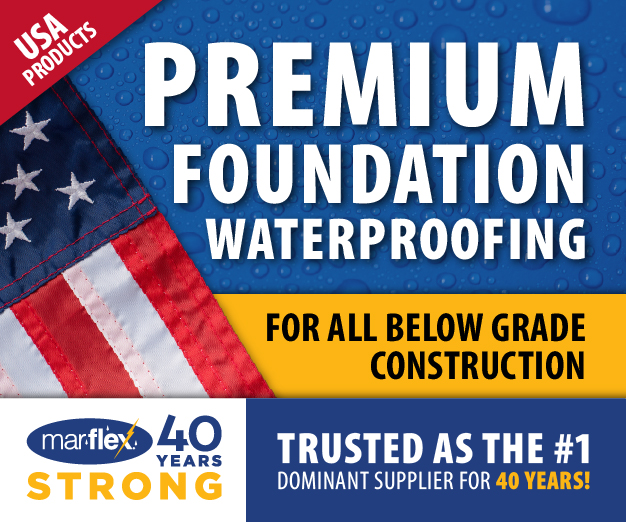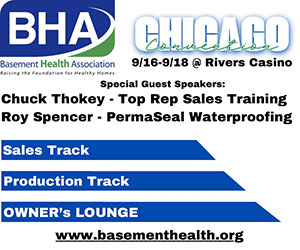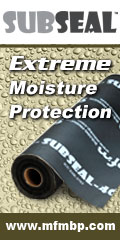
Construction Slowdown Worst in 50 Years
The current housing downturn is shaping up to be the worst in 50 years, and has not yet run its full course, according to a newly released Harvard University Study.
Despite product cuts “rivaling those in the 1978-1982 downturn, the number of homes on the market did not shrink in the first quarter of 2008,” the report says.
“The weak economy, tight credit and concerns over whether house prices had bottomed out continued to suppress demand and delay the absorption of excess units,” it reads. “Until this oversupply is reduced, housing markets will not mend.”
While Harvard’s housing analysts remain optimistic about long term prospects, they describe the next year as “a rocky road ahead.”
Over the next decade, demand fundamentals should support average annual completions of more than 1.9 million units, although “the housing market must first work off the one million or more excess units that were vacant and for sale… at the beginning of 2008.”
The consensus forecast among economists is that “the fundamentals of demand are likely to drive a strong rebound in housing once prices bottom out and the economy begins to recover.”
The biggest factor, according to the report, is the oversupply of homes on the market, which currently is enough to last 11 months. (Three months is considered healthy.)
“All of these factors may make this downturn more protracted than usual,
and credit market woes may slow the eventual rebound,” the report warns. Spending on home improvements “will also come under increasing pressure because it is sensitive to both credit availability and house price appreciation.”
Code Proposals May Affect Waterproofers
Several recent proposals made to the International Building Code would have a significant affect on waterproofers if approved. According to the NAWSRC, there are three suggested code changes waterproofers should be aware of.
Proposal 1: Require Basement Wall Insulation This energy code proposal would require basement walls to be insulated in climate zone 3. Currently, no insulation is required. “Basement wall insulation would be required in the areas where basement wall insulation makes the most sense—the colder areas,” says Ronald Majette, drafter of the proposal. “Assuming a house with a 130-foot perimeter basement… this insulation will save $208 a year in heating costs.”
Like many energy conservation efforts, this would increase construction costs slightly. The National Association of Home Builders (NAHB) estimates it would add about $1,000 to the cost of a home, with a payback period of about five years.
Proposal 2: Heated-slab insulation The Department of Energy also wants to clarify the requirement for heated slab insulation. The proposal requires underslab insulation to be two feet below grade in climate zones 1–3.
Proposal 3: Conditioned crawlspace vs. plenum This change would essentially treat conditioned crawlspaces like conditioned basements, allowing fuel-gas lines and plumbing-waste cleanouts to be located there. The code as currently written has been interpreted in some jurisdictions to classify such crawlspaces as under-floor plenums, which prohibits the placement of fuel gas lines and plumbing waste cleanouts. This change proposal will ensure that, for these purposes, conditioned crawlspaces are uniformly treated in the same manner as conditioned basements rather than as plenums.
The committee will vote in September 2008. If approved these energy conservation codes changes will be accepted and instituted.
NAWSRC Convention Planned
The National Association of Waterproofers and Structural Repair Contractors (NAWSRC) will hold their annual convention in late August.
Scheduled to run August 26 through August 29, 2008, the gathering will take place in St. Louis, Mo., at the Hilton at the Ballpark. For a complete schedule of events, cost, registration, and exhibitor information, visit the NAWSRC website, www.nawsrc.org.
New AIA Course Online
A new AIA-approved course is available online that covers the finer points of working with concrete. Titled Concrete Curing Compounds and Sealers Examined, and The New Era of Polished Concrete, it was created by W.R. Meadows and is hosted on the AEC Daily website.
The course provides an overview of the differences in concrete curing compounds, seals and sealers, and proper finishing methods. It also includes an overview of diamond grinding and polishing as an alternative finishing technique.
The course counts toward the continuing education credits required by the American Institute of Architects (AIA).
AEC Daily is an online learning center website where users can take continuing education courses related to the construction industry. AEC Daily then reports the credits to the relevant association on the user’s behalf.
New SWRI Validations
The Sealant, Waterproofing, & Restoration Institute’s validation program continues to move forward, with Pecora Corporation submitting four products for validation or revalidation. All four products passed.
The two silicone sealants (890 and 864) are newly validated.
Pecora’s polyurathane sealants (Dynatrol II and Dynatrol I-XL Polyurethane Rubber Sealant) were resubmitted for testing.
All tests are performed by an independent, third party laboratory to rigorous ASTM standards. Manufacturers that wish to have their wall coating, deck coating, liquid sealant, or pre-cured sealant products validated can contact the SWR Institute at 816.472.7974 or online at www.swrionline.org.
New Hires at Hydrotech
American Hydrotech, a water-proofing and roofing product supplier has added two key figures to its sales team.
Chad Smith is now serving as central regional sales manager, promoting Hydrotech’s products and assemblies to architects throughout the Midwest and providing support to Hydrotech’s field reps and applicators.
Smith has more than 17 years of experience in the construction industry, working as a regional sales manager for a similar company previously.
“I look forward to working with Chad in his role here at Hydrotech as he works to expand the market and grow our sales”, said Ed Jarger, general sales and marketing manager.
The company has also hired Charles W. Loughrey to promote green roof assemblies. As garden roof sales coordinator will be raise awareness of Hydrotech’s garden roof assemblies to the architectural community and will educate developers and installers about the design, installation and overall benefits of green roofs.
Loughrey has spent more than 20 years in landscape architecture, including 10 years as head of his own business. “His passion and ambition for green projects in combination with his technical background will be a great asset to Hydrotech and the continued expansion and promotion of the garden roof assembly”, said Steve Skinner, garden roof product manager.

















